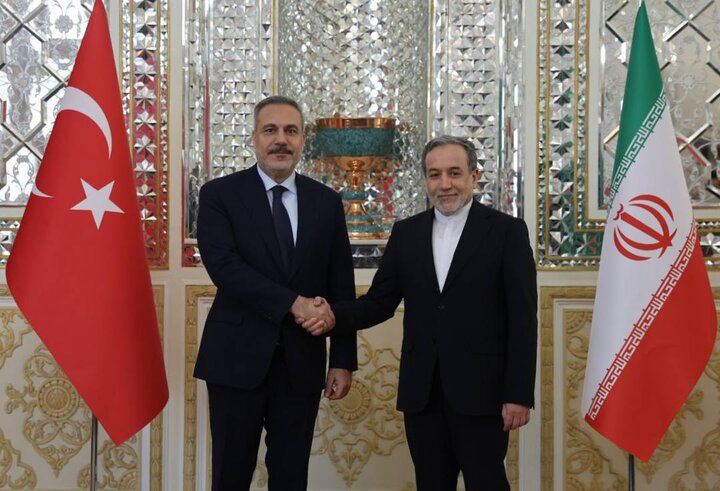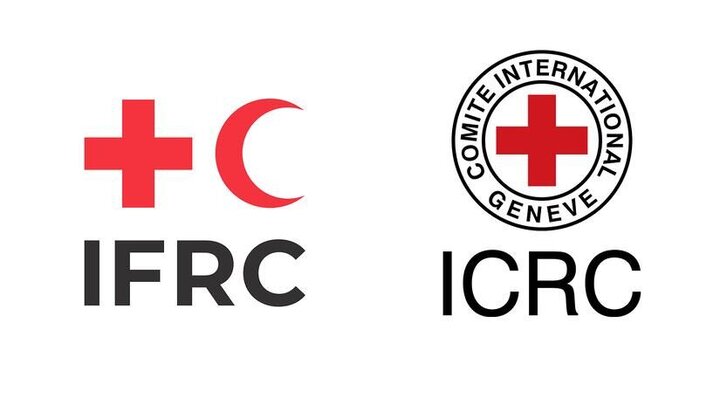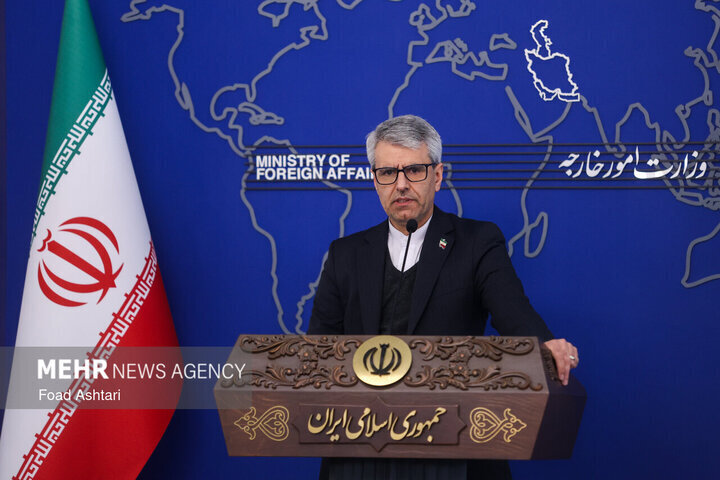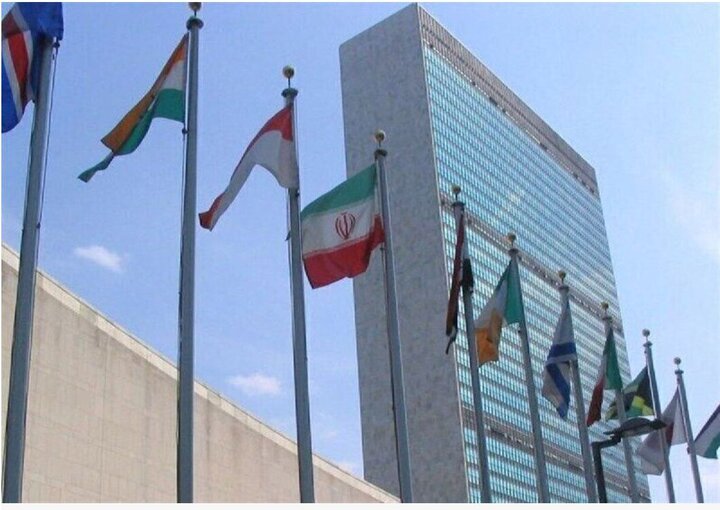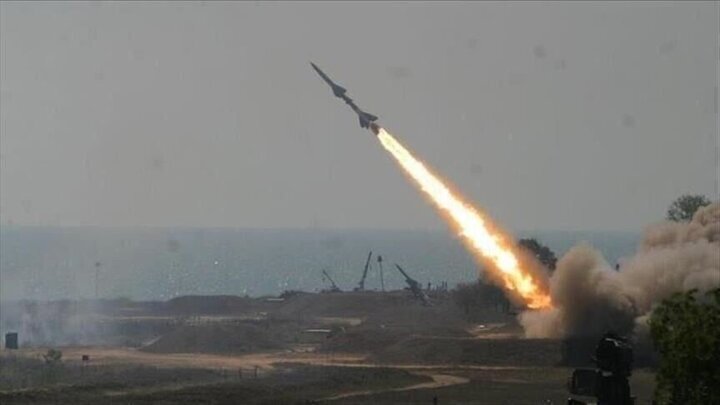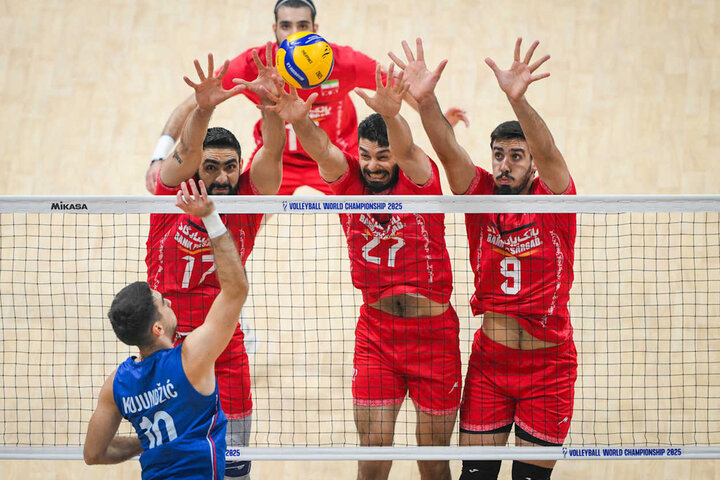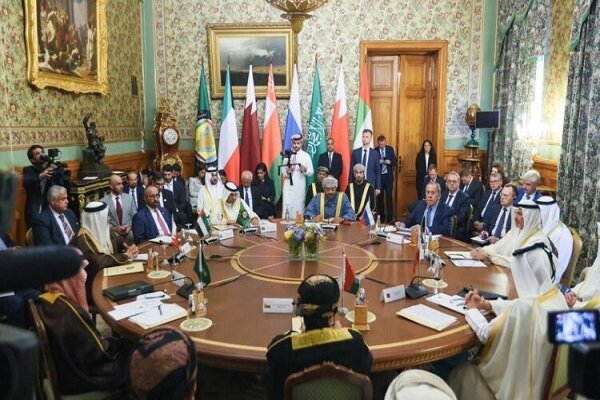
Last week, foreign ministers from the Persian Gulf Cooperation Council and Russia held the sixth joint ministerial meeting of the strategic dialogue in Moscow.
The statement issued by Russia and the PGCC after the meeting questioned Iran’s redlines regarding its ownership of the Greater Tunb, Lesser Tunb, and Abu Musa.
In the statement, the ministers said the issue regarding Iran’s Trio islands should be settled through bilateral negotiations or the International Court of Justice, in accordance with the rules of international law and the United Nations Charter.
The move of Moscow which is considered an ally of Tehran was met with serious responses by top Iranian officials and diplomats.
Summoning Russian ambassador Tehran’s first reaction
On July 12, the Iranian Foreign Ministry summoned Russian Ambassador to Tehran Alexey Dedov to be informed of Iran’s protest over the content of the statement.
Alireza Enayati, assistant to the foreign minister and Director General of the Persian Gulf Department at the Iranian Foreign Ministry, called in the Russian ambassador to hand over the Islamic Republic of Iran’s objections to the contents of the joint statement issued after the sixth ministerial meeting of strategic dialogue between Russia and the PGCC.
Enayati told the Russian envoy that the three islands of Abu Musa, the Greater Tunb, and the Lesser Tunb belong to Iran for eternity, and demanded that the Russian Federation rectify its stance on the matter, according to the Foreign Ministry’s website.
The Russian ambassador to the Islamic Republic stressed Moscow’s respect for Iran’s territorial integrity and said he would convey the matter to Moscow at the earliest.
Also, in recent days a number of Iranian high-ranking officials also expressed their objections to Russia in the strongest words.
FM Amir-Abdollahian: Russia’s explanations on joint statement with PGCC not enough
Speaking in a joint presser with his Omani counterpart on Monday, the Iranian foreign minister Hossein Amir-Abdollahian strongly rejected the Russia-PGCC statement and said that
, saying that the explanations provided to Tehran by Russia about the statement were not inadequate enough.
He stressed that the Islamic Republic of Iran will not compromise on its independence and territorial integrity.
“We will never tolerate the repetition of such a procedure in the statements and interference be it on the part of Russia or any other party in issues related to the territorial integrity of Iran.”
Amir-Abdollahian further stressed that the trio islands will belong to the Islamic Republic of Iran forever.
Parliament Speaker Ghalibaf urges Russia to respect Iran’s red lines
Addressing the Parliement’s open session on Sunday, Parliament Speaker Mohammad Bagher Ghalibaf strongly rejected the contents of the Russia-PGCC joint statement over Iran’s trio islands.
Terming Iran and Russia as two important actors in the region promoting cooperation in various fields based on common interests, he said, “However, Russia must know that Iran’s cooperation with neighbors depends on respecting the red lines of the Iranian people, including the territorial integrity and sovereignty over the three Persian Gulf islands of Abu Musa, the Greater, and Lesser Tunbs.”
“The territorial integrity of Iran has been preserved with the sacrifices of hundreds of thousands of Iranian martyrs and we will not compromise with any side in this matter,” Ghalibaf noted.
FM Spox.: Iran’s sovereignty over Persian Gulf islands not negotiable
In reaction to the recent Russia-PGCC joint statement over Iran’s trio islands, the Iranian Foreign Ministry spokesperson Nasser Kan’ani said that the issue of Iran’s territorial integrity and sovereignty over the three islands of the Persian Gulf is not negotiable.
Iran considers the interference of any country, including the UAE, Russia, or any other party in this connection, as unacceptable and rejected, Kan’ani said.
Tehran will give a serious and appropriate reaction to any action that goes against the principle of respecting the sovereignty and territorial integrity of countries under international law, he said.
Iran ‘very sensitive’ about every iota of national territory: Army cmdr.
The Chief Commander of the Iranian Army Major General Abdolrahim Mousavi also said, “We will never neglect for a moment protecting the Islamic Republic’s borders and interests, from the northernmost to the southernmost spot of the sacred land of Iran, and will safeguard the country’s territorial integrity with full force.”
“We are very sensitive about every iota of our country’s soil and whatever is said every now and then about the Islamic Republic’s properties,” he stressed.
Senior cleric: Iran expects Russia to rectify stance over trio islands
Speaking at the sermons of Friday prayers held at Imam Khomeini Mosalla, Tehran’s interim Friday prayers leader Hojjat-ol-Islam Mohammad Hassan Abu Torabi Fard stressed that considering the strategic relations between Tehran and Moscow and the SCO charter regarding respecting the sovereignty and territorial integrity of the member countries, the Iranian seriously expect Moscow to rectify its position.
Russia should correct its positions
Russia, China, the US, and the UK should know that Iran will not return to the Qajar and Pahlavi era, the Islamic Republic will defend its land borders and rights with all its might, Mohsen Rezaee a member of the Expediency Discernment Council said in a tweet.
Russia should correct its positions, he stressed.
Iran’s relations with them are established not due to weakness. No one has the right to abuse such relations, he noted.
Russia fell into the same trap that China fell into a while ago
Ali Akbar Velayati, a senior adviser to the Leader of the Islamic Revolution Ayatollah Seyed Ali Khamenei on international affairs also reacted to the move and said, “Russia fell into the same trap that China fell into a while ago.”
Advising Russian friends not to be naive, Velayati said, “The issue of the Iranian islands of the Greater Tunb, Lesser Tunb, and Abu Musa is completely clear according to international rules.”
Old documents indicate Iran’s indisputable ownership of trio islands
Speaking following a cabinet meeting on Wednesday, Mohammad Dehghan, the Iranian president’s deputy for legal affairs, also dismissed the UAE’s claims, saying all past documents indicate Iran’s indisputable ownership of the islands.
“Some regional rulers are trying to forge documents and bribe a number of international legal experts, which is void of legal value. Old documents on the issue are clear, and because the basis of our movement is legal, then we have no doubts on this,” he told reporters.
History approves Iran ownership over Greater and Lesser Tunbs and Abu Musa
The three islands, Abu Musa and the Greater and Lesser Tunbs are located in the Persian Gulf between Iran’s and UAE’s mainland, at the western entrance to the Strait of Hormuz.
The islands have historically been part of Iran for many centuries, proof of which can be found and corroborated by countless legal, historical and geographical documents in Iran and other countries.
With the weakening of Qajar Iran and British imperial expansion in the Persian Gulf, the three islands fell under British control, first Abu Musa in 1904, followed by the two Tunbs in 1921.
Over the next half-century, London entrusted local administration to the British-appointed Sharjah and Ras al-Khaimah Sheikhs. Iran and the UK intermittently engaged in heated discussions about the status of the three islands but without any results.
On November 30, 1971, a day after British forces left the region and just two days before the UAE was to become an official federation, Iran’s sovereignty over the islands was legitimately restored.
Iranian troops on Abu Musa were officially welcomed by Sheik Saqr bin Mohammed Al Qasimi, the Sheikh of Sharjah’s brother, and on the same day, Iran and British Sharjah signed a Memorandum of Understanding (MoU) acknowledging Iran’s full rights over them.
The MoU approved and confirmed the presence of Iranian troops, allowed Sharjah to have a local police station with its flag, and guaranteed equal energy and fishing rights for both nationals.
Iranian forces also landed on uninhabited Lesser Tunb and sparsely populated Greater Tunb, where a minor skirmish was initiated by a few British-affiliated tribal troops.
Russia has no choice but to rebuild trust
Iran has always considered preserving the borders, national interests, and sovereignty over the trio islands as its red lines.
Tehran and Moscow enjoy close political, economic, and military cooperation. Iran has established its relation with allied countries such as Russia based on mutual respect over national interests and when it comes to national interests and principle policies, Tehran has proved that it will not compromise with any country.
Some experts believe that Iran’s strategic relations with this country will possibly go through many changes in the wake of such an unconstructive stance by Russia.
It seems that Russians have no choice but to rebuild trust in their ties with the Islamic Republic of Iran and compensate for the mistake in order to avoid further misunderstanding and possible harms to the two countries’ relations.
Reported by Marzie Rahamani
